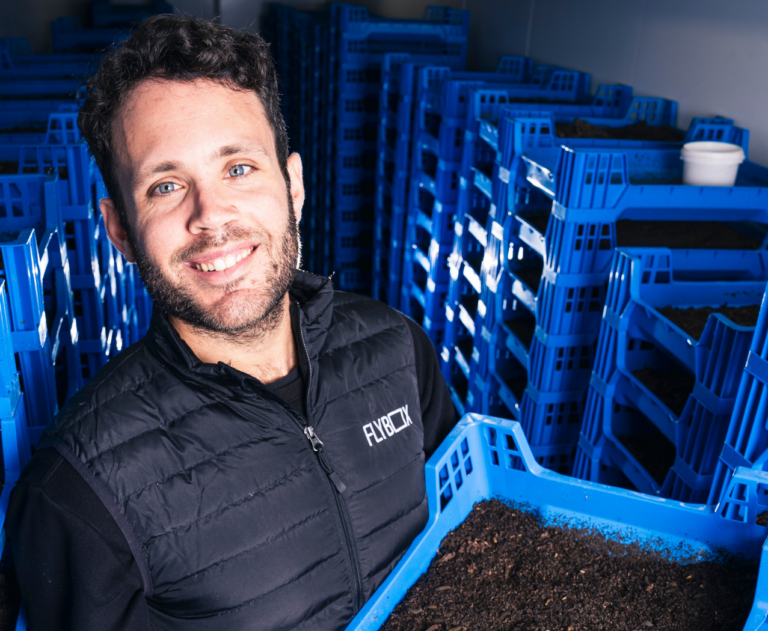Modular insect farms could offer a low-cost addition to poultry production systems to process chicken litter into a saleable protein product. The concept will be discussed at an Agri-TechE webinar titled Future Farms on 24 April.
Farm diversification has become more critical than ever for farm profitability. Modular insect farms are a waste management solution to help solve challenges like water pollution from excess poultry manure to our reliance on imported protein, said Larry Kotch, chief executive of Flybox.
Flybox is developing smaller-scale insect farms that farmers can incorporate alongside their existing practices. In fact, Kotch claims insect farms can be more efficient than an anaerobic digestion (AD) system while boasting greener credentials. The two technologies are also highly complementary.
It is also a system poultry farmers are used to. In the case of Flybox’s model for insect farms, specialist companies will supply juvenile black soldier fly larvae, while others support the farmers’ buyback of the end products. Flybox focuses on building insect growing systems, supporting new operators with feedstock trials and advice to bring the whole business model together.
“We are trying to make insect farming much more accessible with a lower requirement for capital,” said Kotch. “Previously, insect protein production was based around large factories with teams of entomologists and ingredients experts, which had a high amount of risk.”
The challenge remains around regulation. Larry says the technology and business model are proven and ready to go, but the rules surrounding insect production do not allow its use in the way that would add the most value to poultry and egg producers.
“The regulations in the UK are the strictest in the world outside of the EU. There are restrictions on what feedstocks we can use for insect production, specifically around manure.
“The black soldier fly larvae love manure. They eat it safely, and their digestive systems are an antimicrobial soup. Many studies show that it doesn’t increase the risk of prions passing through the food chain, but because of the precautionary principle, manure isn’t allowed to be used.
“Even so, the business case exists for multiple businesses in the UK despite those hurdles, but the industry would boom with relatively simple, safe changes to the law,” said Kotch.
You can resister for the webinar on the Agri-TechE website.


